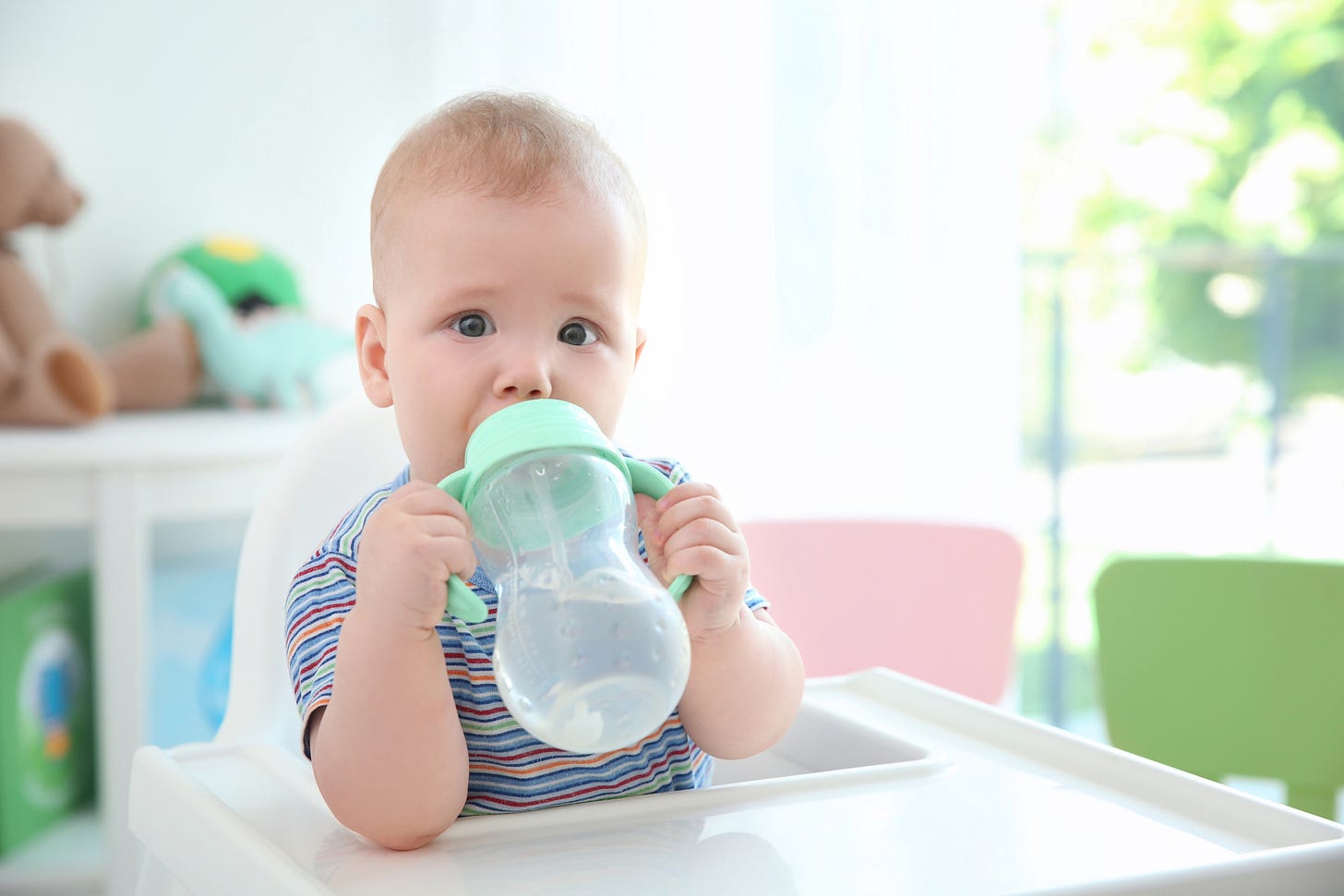The first time you hold your newborn, you’ll be told one of the strangest things: “Don’t give them water.” You’ll blink, glance at that tiny mouth, and think, Seriously? It feels natural to want to quench any thirst, but for babies under six months, water is completely unnecessary, even risky. In those early weeks and months, breast milk or formula offers everything your infant needs. The idea of waiting until around six months to introduce a sip of water might sound odd, but it’s rooted in keeping your baby safe, nourished and on track to thrive.
Imagine your baby at two weeks old, swaddled, with a small tummy that’s about the size of a small egg. Every drop they take matters. Give them water, and that’s space in their belly taken away from milk, the only source of calories, fat, protein and all the micro-nutrients. At that age their kidneys aren’t ready to handle free water. Too much could dilute important minerals in their blood, leading to a dangerous condition called water intoxication. No parent wants to face seizures or worse because they thought a little water couldn’t hurt.
So you feed. And feed. And maybe feed again at 2 a.m. on a hot summer night, when even you feel parched. That’s exactly what your baby does: they take another breastfeed or bottle. Their fluid needs are met. Nature’s perfect design gives newborns milk that’s roughly 90 percent water. Your body even tinkers with milk’s makeup so the first bit is extra watery (to quench thirst) and the last bit is richer (to fill that tummy).
Sometime Around Six Months, a World of New Textures, and Water
Fast-forward to around six months. Your baby sits in a high chair, eyes wide at the idea of spoonfuls of smooth carrot or mashed banana. That’s the moment to offer water, tiny sips, really, just to help wash down new solids and get used to the act of drinking. Not a bottle, but a little cup. Think imitation play: they watch you sip from your mug, they get handed a baby beaker or open cup. They clumsily press lips to rim, tilt their head, spill half on the tray, and you cheer because they’ve learned something new.
It’s not about hydration at this point. Milk (breast or formula) still does 90 percent of the heavy lifting. Water, maybe 30 to 60 ml a day at first, is practice. Some days they’ll spit it out or play with the cup as a makeshift toy. That’s fine. By a year, they might sip 120–240 ml of water daily, but they’ll still crave their milk feeds. In Ireland, the advice is still to boil and cool that water until that first birthday. In the UK, you can switch straight to tap water after six months, trusting the mains supply. Personally, I think that is reasonable to do so (unless of course there are general “boil water” notices).





